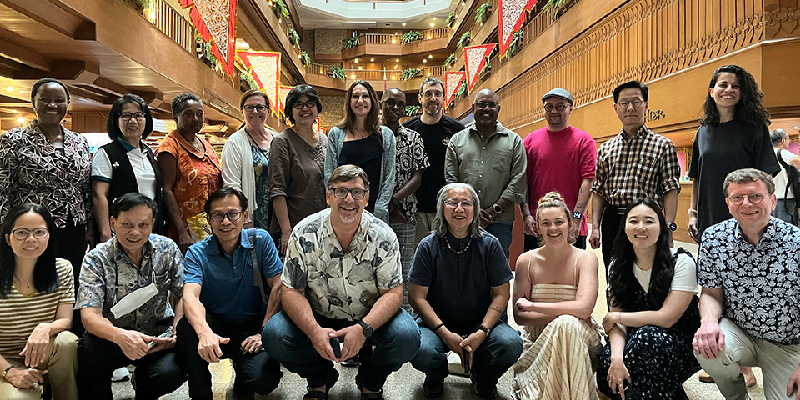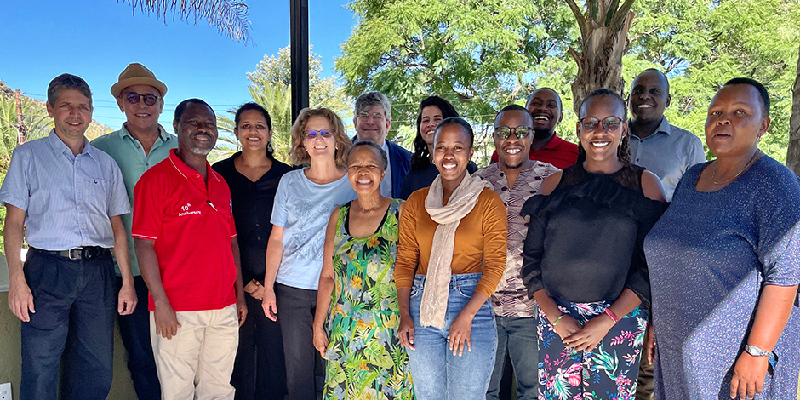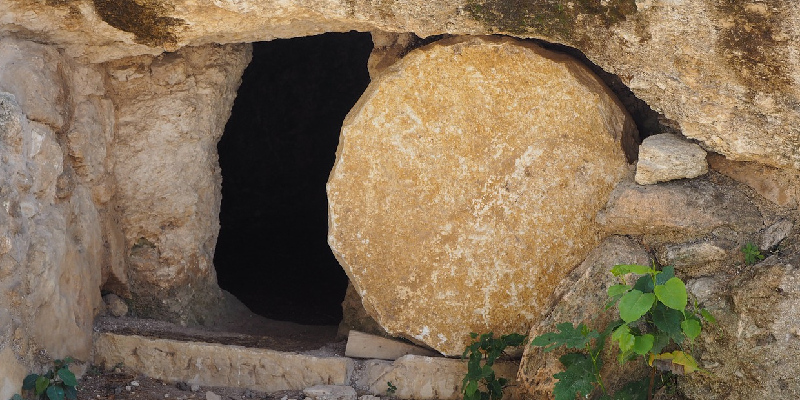Aktuelles
Aus den Landeskirchen >>>
Aus den Gemeinden >>>
Aus dem Reformierten Bund >>>
Kolumne >>>

from... - die reformierte App

Newsletter

Wir auf Facebook
Globaler Dialog in Südafrika: Krise als Chance für eine Bewegung für soziale Gerechtigkeit
Mohau Pheko: current crisis is ''a spectacular failure'' of the current system
“We have to smash the current paradigm so that it does not have roots and legs to rise again,” Pheko told the group of nearly 60 people from 23 countries who are meeting to focus on what churches can do to address inequalities in the global economic system.
The event, which organizers call a global dialogue, focuses on economic justice and concern for the earth’s ecology. Organized by the World Alliance of Reformed Churches, the consultation builds on the organization’s statement on global economic justice, known as the Accra Confession.
The statement, issued in 2004 during WARC’s global assembly in Accra, Ghana, declares “economic systems are a matter of life or death” and says “the policy of unlimited growth among industrialized countries and the drive for profit of transnational corporations have plundered the earth and severely damaged the environment”.
Pheko, an advisor to governments and trade organizations, told delegates the need for change is urgent, especially in Africa where there is not the money to weather the ill effects of the crisis due to cuts made as part of austerity programmes imposed by the International Monetary Fund.
Saying it is time to act now, Pheko calls for advocates of change to “crystallize” forms of protest already underway such as service delivery protests in South Africa and food protests elsewhere: “The streets already know the issues; we have to listen to the streets.”
The Accra Confession continues to spur action and debate among churches on how they can interpret and respond to the impact of the current global economic model. The dialogue in Johannesburg brings together churches whose understandings differ in order to seek their input in charting how the organization can continue to address economic and environmental issues in the future.
In addressing those currents of concern, WARC has published a guide to the Accra Confession that points to the declaration’s importance to Christian ethics in the contemporary world.
Choose Life, Act in Hope, authored by Puleng LenkaBula, a South African academic from the University of South Africa (UNISA), was launched Friday as part of the programme of the Global Dialogue.
Clifton Kirkpatrick, WARC’s president, calls the book “a wake-up call to Christians not only in Africa, but also around the world, to the fundamental ethical calling of the Christian faith in our time.”
Describing it as “part history, part theological vision, and part a call for action,” Kirkpatrick says, “Puleng LenkaBula articulately expresses why this covenant for justice in the economy and the earth is the central commitment of the World Alliance of Reformed Churches.
The study resource offers questions for discussion at the end of each chapter and encourages WARC members to popularize the Accra Confession and find ways to apply it in daily life.
“I enthusiastically recommend this book to every Christian who seeks to faithfully follow Christ in our world today,” says Kirkpatrick.
In her comments about the book, LenkaBula compares the current situation with that of the
“The lived reality for many African peoples and effects of the empire are still evident in structures and or relationships between
LenkaBula, who teaches courses on social, political, feminist and economic in the Department of Systematic Theology and Ethics at UNISA, focuses her research on economy, ecology and ethics, particularly the areas of the land, property, and intellectual property rights.
The Global Dialogue event concludes today (7. September).
For more information on the Accra Confession, including the full text, see:
http://www.warc.ch/documents/ACCRA_Pamphlet.pdf
Barbara Schenck
'Frieden ist nicht nur ein Konzept'
Quelle: WGRK
'Was wir persönlich und als Kirche tun müssen: helfen'
Quelle: WGRK
Eine andere Welt ist möglich
Quelle: WGRK
'Wir müssen eine Öko-Spiritualität entwickeln'
Quelle: WGRK
'Es geht um einen Bund, den Gott mit seinem Volk geschlossen hat'
Quelle: WGRK
'Seid beharrlich in eurem Zeugnis'
Quelle: WGRK
'Es gibt noch viel zu tun'
Quelle: WGRK
Gibt es eine Theologie der Ernährung?
Quelle: WGRK
Über das Grab hinaus denken
Philip Peacock
Christen beten für den Frieden in einer zerrütteten Welt
Quelle: WGRK












